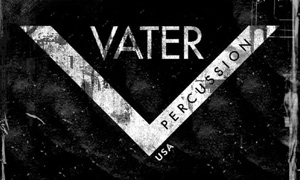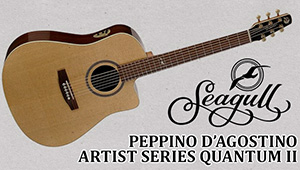 Darden Smith
Darden Smith

Darden Smith is a well-established, successful songwriter, and the founder of a terrific musical outreach program with and for military veterans called “Songwriting With Soldiers.” After this short performance of Burt Bacharach’s “Say A Little Prayer,” he shares a little about his songwriting process and the “Songwriting With Soldiers” effort.
Q – Darden, before we get started, can you give me a brief overview of your background?
A – I grew up in Texas. I started playing guitar at age 9 and wrote my first song at age 10. I remember wanting to learn all the songs on Neil Young’s “Harvest” and “After The Gold Rush” records. Actually, it was the first time I realized that songs were written by somebody, so I asked my teacher, “can I do that?” He said, sure…it’s just poetry put to music. So I went home and wrote my first poem and I was hooked. Then, when my family moved to Houston, I was this really odd farm kid. I started writing songs aggressively then. I was really into Guy Clark, Townes Van Vandt, Jerry Jeff Walker, Willie Nelson, John Prine…that whole thing. I discovered Dylan when I was in the 10th grade. Eventually, I moved to Austin to play music and go to college, of course. I put my first record out in 1986. That was an independent record. Then I got signed to Columbia shortly after that. Did that for 7 or 8 years, and it’s been independent records ever since.
Q – As a songwriter, do you find it’s easier to write in the midst of a topic or upon reflection?
A – I find that you can reflect and get a certain kind of song…but being in the middle of it, there’s a certain kind of electricity to it. I think that is what has helped keep me sane over the years and has helped keep me balanced to the degree which I am balanced. Learning to write when I have something going on allows me to get the demon out of my system. I don’t know what people do who can’t write songs. If something is bugging me I’ll sit down and write a song about it.
Q – Do you co-write?
A – Yes, I love to co-write. I co-write a lot now.
Q – To a musician, the idea of co-writing a song is sometimes pretty foreign to them. What would you tell a young musician or singer-songwriter on how to co-write?
A – To a young musician, I would say “get over it.” I look at it like learning from the Masters. When you co-write, you should always try to write with someone who’s better than you. And don’t look at it like you’re trying to write the Magna Carta anyway, because you’re only writing a song. So look at it like going to school. Again, think of it as a Master Class in songwriting. Try to get with the bad-asses and try to learn something from them. They know more than you do. Sit down with someone where 1+1=3. Sometimes you sit in a room and just stare at your guitar and paper. You can work yourself so far into a hole that you can’t see the song. It can help to have someone say, “hey, that part of the song is really good and, well, that part of the song doesn’t really say anything.” So that’s the thing I really learned in co-writing. If I got an idea, I’ll try it. But if I can’t finish it I’ll take it to someone else. You can come out with a better song that way. Try to write a great song.
I started going to Nashville to write. It has helped me think through problems, because everybody has a different way of working their way out of a corner, and songwriting is all about corners. You work yourself into these logic games and “how do I say this in a few lines?” or “how do I add a new line to the song?” So Nashville is brilliant at that. It’s a co-writing town.
Q – Do you look at songwriting as an art or a craft?
A – It’s both. You have to have the craft to find the art. Art without the craft is rarely functional. You have to be good at your craft to make art.
Q – How do you personally approach songwriting?
A – It depends on what’s going on in my life. Sometimes I don’t have the time to consciously write every day, but if I have a block of time to set aside I will. I don’t just wait for the inspiration to come, because you’ll miss a lot of songs that way. But when the inspiration hits, I definitely stop and write. I enjoy writing songs. It’s great.
Q – Now tell me a little about your “Songwriting with Soldiers” project.
A – “Songwriting with Soldiers” is an outgrowth of another project I have called “Be An Artist” program. “Be An Artist” program is based on a belief that I have in that everybody is an artist and everyone is capable of creating art. You just have to find out what you’re interested in. And art doesn’t necessarily mean painting, or singing and stuff like that. It could be plumbing, it could be fixing up cars, it could be accounting, it doesn’t matter whatever it is. It’s looking at your life creatively. Over the years, I’ve learned that I can write songs with a whole lot of people. Even with people who don’t write songs. Just by talking with them and putting their words into song. I have an understanding of certain song forms. With “Songwriting With Soldiers,” I get soldiers to talk and take their words.
Radney (Foster) and I have a song called “Angel Flight.” We wrote it for the Texas National Guard. The reason we wrote that song is because I had the opportunity to be around some soldiers both in Germany and Texas and I was really moved by them. I really didn’t think that I had a lot in common because I’m not a soldier. What was fascinating was that, because we were writing songs, they would tell me anything. They would talk. Through the process though, with the story they were telling, you could say the weight, or the power, or the charge of their story – gets transferred out of them into me. So, they are lighter. I just take their words – this awful, maybe painful story – and I make a song out of it and sing it back to them – and also record it, so now they’ve got it. The process of them talking, and me listening…it’s a collaboration that somehow takes the weight out of them and transfers it into me so I can get rid of it. So it’s a huge service to them.
I know what happens when I write a song, when I have something going on in my life that I have to get out. I write a song about a thing, a subject, a conflict, and it’s like I have a piece of tar in my heart. Writing a song reaches in and grabs that piece of tar and takes it out of my heart and onto a shelf. I can see it and access it whenever I want to. But I don’t have to carry it anymore. I feel lighter. Well the same thing happens with the soldiers. After doing that first experience with it I found it was just too powerful for one guy to do. I was leveled, because again it’s just all the stuff being transferred onto me. It really whacked me out. I realized that this was a very powerful thing and for some reason I am called to do this. My son actually, who was about 17 at the time, said to me, “dad, it’s like you’re serving them. You’re serving your country now.” I was really moved by that.
You can’t be around it and not be touched. There is too much power being moved around the room. And these people are really amazing people and you can’t help but be moved by their strength, their service, their fortitude in the face of incredible trauma. It’s a really moving thing.
We write the songs with them. We do a three-day retreat, and at the end of the retreat we write 16 or 17 songs. Then we record them all. The soldiers all get copies of their songs and they are registered with ASCAP as songwriters. We have a guy come in and record everything right there. They are in the room with us. They’re not singing or playing, unless they want to sing or play, but most of them are not singers. Then we put together a photo book of the retreat along with the CD of everyone songs, then follow up on social media. Basically, we go away from the world, and create a bubble and we spend a few days being of service to them. We can make a massive difference in these people’s lives. It truly is a beautiful thing. It’s not like we’re trying to heal them. We’re writing songs. But the process heals.
Q – How can people learn more about this project and help support it?
A – There’s a website, SongwritingWithSoldiers.org. And you can donate. The most important thing is resources.





